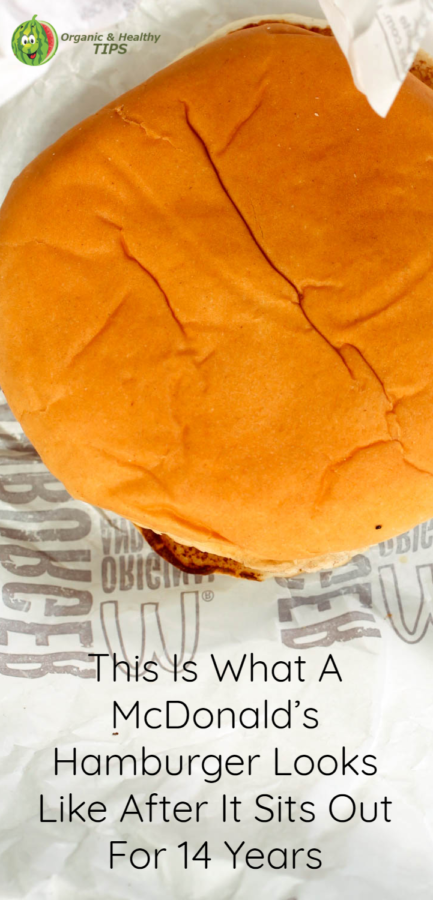Fast food is a detriment to the health of all who consume it. No matter if you are chasing the ‘Golden Arches’ or ‘Running for the Border’, the overtly processed chemicals that these fast food restaurants pass off as food is terrible for you. Even with all the science that we have at our disposal, there are still people who refuse to acknowledge this fact. Many people convince themselves that these quick and easy ‘meals’ couldn’t be deadly; why else would the FDA still allow these businesses to peddle their defiled sludge?
As you can see in the video below, McDonald’s obviously has a plethora of exploits the FDA has turned a blind eye to. For instance, what would cause a hamburger to not mold or rot over a 14 year period.
McDonalds has claimed in a desperate hail mary of P.R. damage control over the years, that it was simply the lack of moisture which caused their hamburger to mummify. What their public relations fails to mention is their use of the following preservatives that keeps their food from rotting.
 Azodicarbonamide (Banned in the EU, Singapore, and Australia) is used in the food industry as a food additive, a flour bleaching agent and improving agent. Azodicarbonamide actually relaxes the dough so that when it is divided in large-scale bakeries under pressure, it still retains a good character. It has been known to cause allergic reactions in those sensitive to other azo compounds, such as food dyes. The consumption of azodicarbonamide may also heighten an allergic reaction to other ingredients in a food. The principal use of azodicarbonamide is in the production of foamed plastics as an additive.
In the UK, the Health and Safety Executive has identified azodicarbonamide as a respiratory sensitizer (a possible cause of asthma) and has determined that these products should be labeled with the words “may cause sensitization by inhalation.”
Guar Gum is banned by the FDA in large amounts due to reports of the substance swelling and obstructing the intestines and esophagus.
Sorbic Acid: According to the National Oceanic and Atmospheric Administration, the chemical is a strong irritant and—in large enough quantities—has the potential to cause severe damage to the tissues of the eyes, skin and respiratory tract.
Azodicarbonamide (Banned in the EU, Singapore, and Australia) is used in the food industry as a food additive, a flour bleaching agent and improving agent. Azodicarbonamide actually relaxes the dough so that when it is divided in large-scale bakeries under pressure, it still retains a good character. It has been known to cause allergic reactions in those sensitive to other azo compounds, such as food dyes. The consumption of azodicarbonamide may also heighten an allergic reaction to other ingredients in a food. The principal use of azodicarbonamide is in the production of foamed plastics as an additive.
In the UK, the Health and Safety Executive has identified azodicarbonamide as a respiratory sensitizer (a possible cause of asthma) and has determined that these products should be labeled with the words “may cause sensitization by inhalation.”
Guar Gum is banned by the FDA in large amounts due to reports of the substance swelling and obstructing the intestines and esophagus.
Sorbic Acid: According to the National Oceanic and Atmospheric Administration, the chemical is a strong irritant and—in large enough quantities—has the potential to cause severe damage to the tissues of the eyes, skin and respiratory tract.







